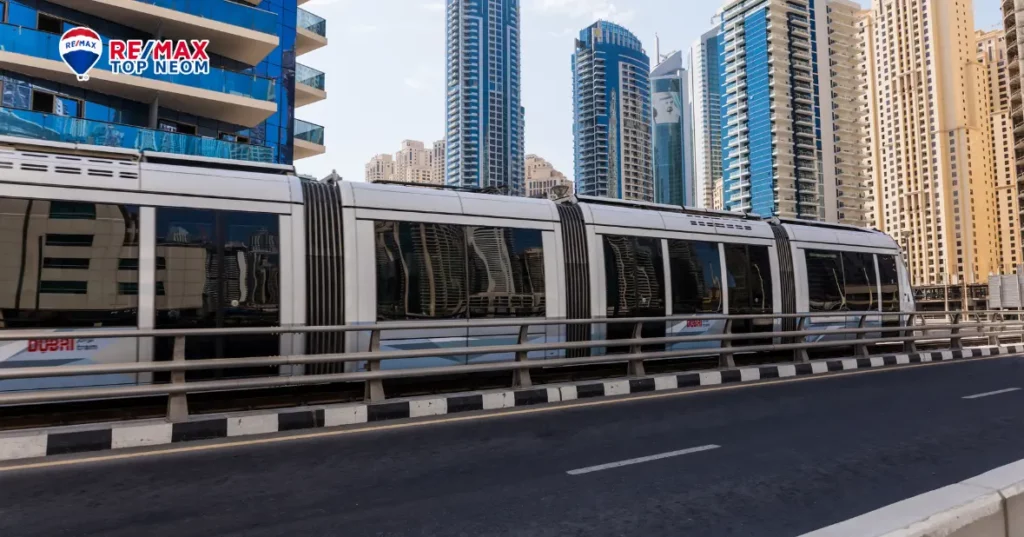If you’re thinking about making the move to Dubai, a city known for its opulence and vibrancy, it’s crucial to get a grasp on the real cost of living. Dubai may offer a luxurious lifestyle, but it also comes with a price tag. In this article, we’ll delve into the various aspects of living in Dubai, shedding light on the expenses you’re likely to encounter, so you can make an informed decision about your big move.
Cost of Living in Dubai – What You Need to Know
1. Housing Costs in Dubai
Dubai’s real estate is famous for its modernity and splendor, but it doesn’t come cheap. Housing costs can take up a significant chunk of your budget. Whether you’re renting an apartment or considering buying a house, you need to be in the know about what’s happening in the city’s real estate market.
When it comes to renting, you’ll find a wide range of options, from swanky apartments in the heart of the city to more budget-friendly ones in the suburbs. Rental prices depend on factors such as location, size, and amenities. On average, you might be looking at AED 80,000 to AED 120,000 per year for a one-bedroom apartment in the city center.
If you’re thinking about buying property in Dubai, prepare to open your wallet wide. Prices can vary greatly, but you should budget at least AED 1.2 million for a one-bedroom apartment in a desirable location.
2. Cost of Getting Around

Getting around Dubai is a breeze thanks to its efficient and well-developed public transportation system. The city’s metro and bus networks are extensive, making it easy to navigate. For a monthly transportation pass, you’ll typically pay around AED 270, which grants you unlimited access to the metro and buses.
If you prefer having your own set of wheels, fuel prices in Dubai are relatively affordable. But don’t forget to factor in costs like vehicle registration, insurance, and regular maintenance.
3. Education Expenses
If you’re moving to Dubai with your family, the cost of education is a significant consideration. Dubai boasts numerous international schools, but their tuition fees can vary greatly. For primary and secondary education, you might be looking at fees ranging from AED 15,000 to AED 100,000 per year.
4. Healthcare Costs

Dubai is known for its world-class healthcare facilities. As an expat, it’s essential to have comprehensive health insurance, which can cost around AED 10,000 to AED 15,000 per year. This insurance will cover your medical expenses and ensure access to top-quality medical care.
5. Grocery Shopping and Dining
Grocery prices in Dubai can be on par with many Western countries, but you can still find budget-friendly options in local markets. On average, you might spend around AED 1,500 to AED 2,500 per month on groceries for a family.
Dining out in Dubai is a treat, but it can also be a bit heavy on the pocket. Expect to pay around AED 100 per person at a mid-range restaurant, while fast food joints are more affordable.
6. Leisure and Entertainment

Dubai is a city that knows how to have fun. There’s a wide range of activities to enjoy, from water sports and desert safaris to visiting iconic landmarks like the Burj Khalifa. The cost of these recreational activities can vary, but it’s a good idea to allocate a portion of your budget for entertainment, which might come to AED 500 to AED 1,000 per month.
7. Utility Bills
The cost of utilities in Dubai is relatively easy on the wallet. For a standard two-bedroom apartment, your monthly utility bills, including electricity, water, and cooling, may range from AED 500 to AED 800.
8. Savings and Investments

Financial planning is essential in Dubai. Consider setting aside a part of your income for savings and investments. Dubai offers various investment opportunities, including real estate, stocks, and mutual funds. Consult a financial advisor to make informed decisions and plan for your financial future.
9. Taxes in Dubai
One of the great perks of living in Dubai is the absence of income tax. This means you can enjoy your earnings without the burden of heavy taxes. Nevertheless, it’s crucial to stay updated on the latest tax regulations and ensure you’re complying with your home country’s tax laws.
10. In Conclusion
Moving to Dubai can open doors to countless opportunities and experiences. However, it’s vital to be well-prepared for the cost of living in this dynamic city. While Dubai can be expensive, its high-quality lifestyle and career prospects make it a top choice for many expats. By understanding the real cost of living, you can make an informed decision and ensure your move to Dubai is a successful and enjoyable one. Remember, careful planning and financial management are key to a comfortable and prosperous life in this vibrant city.
Cost of Living in Dubai (Average Costs)
| Expense Category | Average Monthly Cost (AED) | Average Annual Cost (AED) |
| Housing | 6,700 – 10,000 | 80,000 – 120,000 |
| Transportation | 270 | 3,240 |
| Education (per child) | 1,250 – 8,300 | 15,000 – 100,000 |
| Healthcare (insurance) | 850 – 1,250 | 10,000 – 15,000 |
| Groceries | 1,500 – 2,500 | 18,000 – 30,000 |
| Dining Out (per person) | 100 | 1,200 |
| Recreation and Entertainment | 500 – 1,000 | 6,000 – 12,000 |
| Utilities (2-bedroom apt.) | 500 – 800 | 6,000 – 9,600 |
Please note that these are average costs, and actual expenses can vary depending on your lifestyle, location, and individual circumstances. It’s essential to budget according to your specific needs and preferences when planning your move to Dubai.
Ready to take the next step in planning your move to Dubai and gaining insight into the real cost of living in this vibrant city? Contact us today, and let’s begin your journey towards a brighter future in Dubai!






